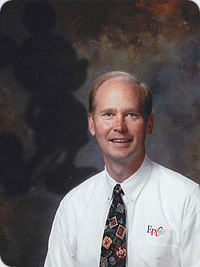In today’s post, our frequent guest columnist Brad Rex, weighs in on the importance of being humble in order to achieve success. Humble Success is an excerpt from his book, “The Surpassing! Life.”
Now the man Moses was a quietly humble man, more so than anyone living on Earth.: Bible, Numbers 12:3
Humble success sounds like an oxymoron. Usually, success results in pride, not humility. We often associate humility with lowliness and failure. The word humility is translated tapeinophrosune in Greek, meaning “to think or judge with lowliness.” Yet, long-term surpassing success only comes from humility.
Jim Collins makes the business case for humility in describing the highest level of leader, the Level 5 leader in his book, Good to Great: Level 5 leaders are ambitious first and foremost for the cause, the organization, the work—not themselves—and they have the fierce resolve to do whatever it takes to make good on that ambition. A Level 5 leader displays a paradoxical blend of personal humility and professional will.
The prideful person often falls prey to one of the following “derailers”:
1. “My hard work got me here.” I struggled with this until the day I worked at a homeless shelter. I sat down to lunch with one of the men and heard his story. As he described growing up fatherless, with a drug addicted mother, in a crime-infested neighborhood, I realized that I would have likely been homeless if I had the same experience. We don’t choose the family we are born into and, as you look back, you will probably see some key times when you got a “break” that determined your future. Hard work is important, but so is intelligence, ambition, appearance, upbringing and family—all things that are outside your control.
2. Personal competitiveness. I’m a very competitive person, which is a blessing and a curse. Competitiveness can motivate you to take risks and excel, but it can also drive you to make poor choices. Before the recession, the Wall Street Journal used to have a section highlighting job promotions. I always read it with interest, looking first for the person’s name to see if I knew them, then the new position and company, and finally their age. I would compare their age to mine to see if I was “on-track.” If the person was younger than me and at a higher level, my competitiveness would kick in, and it would be time to call the recruiters. C.S. Lewis, famous for his treatises on pride, wrote: Pride gets no pleasure out of having something, only out of having more than the next man. If you are never satisfied, you will do anything to get more, and your success will be short-lived.
3. Flattery and infallibility. When I took over at Epcot, all of a sudden my jokes became much funnier. This is a form of flattery. Many who succeed believe “success breeds success,” and their decisions cannot fail. Successful people often start “smoking their own exhaust” and believe their flatterers, until a misjudgment derails them.
4. “I am irreplaceable.” Successful leaders sometimes delude themselves into believing their organizations will fail if they leave. In their mind, this delusion means they must do anything possible to remain in their role, to “save the company.” They fire potential successors, create organizational turmoil, and engage in bitter proxy fights. Often, they put the company at risk, and the only way to save it is to fire them.
5. Temptation. Successful people can believe that they are less prone to temptation or, if they succumb, their fame or money will protect them. Ancient wisdom is as pertinent today as 2,000 years ago: If you think you are standing strong, be careful, for you, too, may fall into the same sin. But remember that the temptations that come into your life are no different from what others experience. A good example is former Governor and Attorney General for the State of New York, Elliot Spitzer. He had money, power and fame. He thought he was above temptation (or at least getting caught) and succumbed to the temptation of engaging prostitutes, derailing his success.
Humble success is possible in today’s business world. The finest leader I ever had the pleasure to work for is Judson Green. Judson is an incredible “Renaissance Man” who was Chairman of Disney’s Parks and Resorts division. He transformed the culture of the division, and led the company through five years of double-digit revenue and income growth, achieving $6 billion in revenue. He then went on to become Chief Executive Officer of NAVTEQ, a preeminent mapping software company, taking the company public and then selling it to Nokia. Beyond his substantial business success, Judson is a concert-level jazz pianist and composer.
Judson epitomizes the Level 5 leader who cares about the people who work for him, and builds strong trust and loyalty. At Disney, Judson always made himself available to help any Cast Member who came to him, despite his very demanding schedule. He taught leadership, through a fascinating Leadership Jazz seminar. He was a major cheerleader for the team, and fought hard to get the resources and rewards necessary to build a world-class culture. He was very focused on business success, but when that success occurred, he gave the credit to his team rather than highlighting himself. He did not fall prey to the pride derailers, and succeeded in life and leadership through humility and service. He has a fruitful legacy in leaders who follow his example and impact the lives of thousands.
Is this the type of leader and person you would like to become? Recognizing the pride derailers and taking steps to foster humility using many of the ideas in this book will promote a lifetime of humble success.
Action Points
• Recognize that humility is a key requirement for long-term success.
• Understand your “pride derailers” and take steps to prevent your misperceptions and temptations from destroying you.
• Ask a good friend to help you know when your pride is harmful to you and others, and remedy the situation.
• Look for and follow role models of humble success.
Payoff
Continued success, exceptional performance, a lasting legacy














































